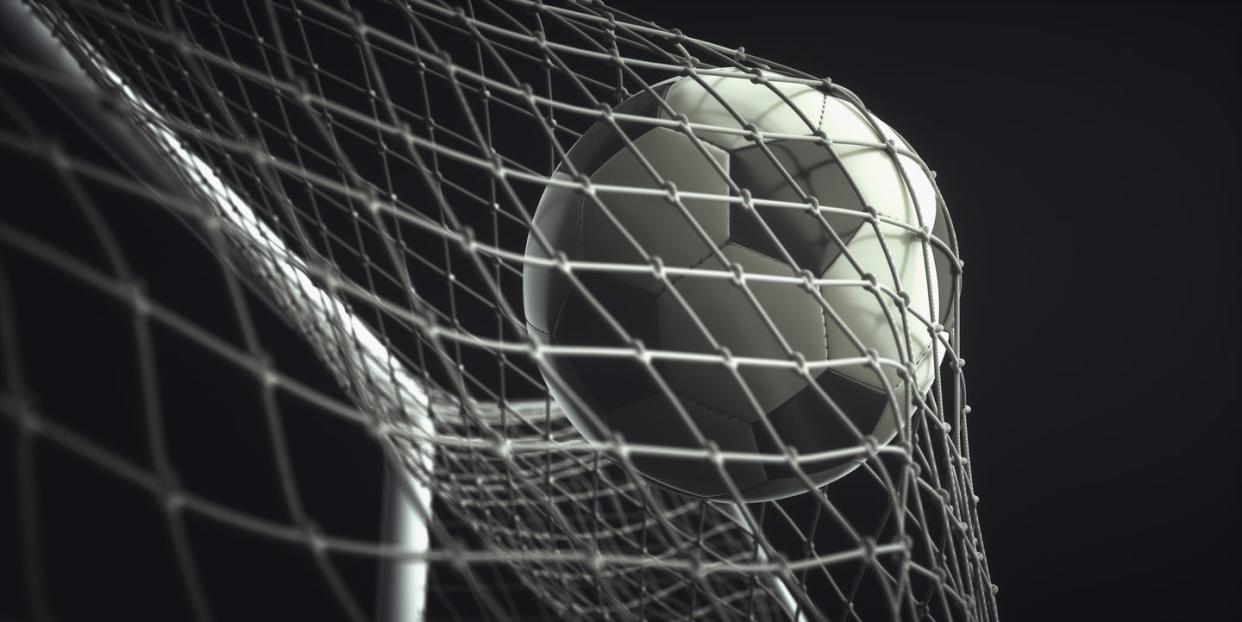Soccer Is Getting Pretty Damn Boring to Watch — and Math Proves It

Soccer is becoming more predictable, according to new research in the field of network science, which studies the connections in a complex network.
The analysis covers over 87,000 games spanning the course of 26 years in European soccer leagues between 1993 and 2019.
There’s a clear difference between the predictability of games played ten years ago and matches played today.
Editor’s Note: This story was originally published in March 2022. We’re dusting it off ahead of the 2022 FIFA World Cup taking place in Qatar from November 20 to December 18.
If Ted Lasso taught Americans anything, it’s that love for soccer—or “football” to virtually everyone else—is a way of life for many avid fans in the United Kingdom.
While Americans might tune in every four years to watch the World Cup, soccer fanatics across the U.K. and Europe watch weekly as clubs shoulder for the top rank in their league’s table, or teeter on the edge of relegation to a lower division. Mere minutes of game play can mean the difference between a victorious win, boosting the team up the table, or an agonizing loss that puts them at risk of tumbling out of the league entirely. At least, this is the kind of excitement that has historically made soccer a nail-biting sport to watch.
⚽️ ➗ You love deep math. So do we. Let’s nerd out over it together.
However, a paper published at the end of 2021 suggests that this kind of excitement is becoming a thing of the past. The results, published in Royal Society Open Science, used a network science approach to study 26 years of soccer scores to determine whether or not soccer is actually becoming boring—or, at least much more predictable.
“I started my career as a network scientist,” Taha Yasseri, a lead author on the study and associate professor of sociology at University College Dublin, tells Popular Mechanics. “[But] as a person, I’m a big fan and follower of soccer. I felt maybe I could use some of the methods from network science to make predictions about the outcome of soccer matches.”
Network science, as its name suggests, is the study of complex networks like computer networks, social networks, or communication networks. In each case, “nodes” represent distinct elements, and “links” are the connections between those elements.
In his new work, Yasseri and colleague Victor Maimone created a database of over 87,000 games spanning the course of 26 years in European soccer leagues between 1993 and 2019. For simplicity, they chose to eliminate tied games from their analysis and focused only on matches with wins or losses. However, just comparing wins and losses between teams is not enough data to truly capture the complexity of their interaction on the pitch, Yasseri explains.
“The problem is that teams play against [opponents] with different levels of strength,” he says. “You might see that Team A has won all the past five matches, but then if you know more about those teams, you might realize that four of those five teams were very weak and at the bottom of the table. Luckily, this has been a problem in network science for several decades, and people have come up with solutions for it.”
To better capture this dynamic, they chose to implement a network model where “edges,” or lines of connection between teams, point from the loser to the winner and carry a weight equal to the number of points the winner earned. In this way, the total score of each team’s node in the network is dependent on its interactions with the other teams in the league.

For each new match, they found the difference between the two teams’ network scores and plugged that value into a logistic regression algorithm to predict the probability of their match’s outcome. A logistic regression is a classification algorithm that helps assign data into discrete buckets, like labeling emails as either spam or not spam.
From this work, Yasseri says that there’s a clear difference between the predictability of games played ten years ago and matches played today. The researchers even found that the benefit of a team’s hometown advantage has decreased since the early 90s.
Peko Hosoi is a professor of mechanical engineering at the Massachusetts Institute of Technology whose work includes studying sports data and technology. She says that while there isn’t a standard approach to studying the probability of sports scores, she agrees that the network approach taken by Yasseri and Maimone makes a lot of sense.
“Ultimately, when you’re talking about predictability, you’re asking how much does this outcome rely on chance?” Hosoi tells Popular Mechanics. “And how much does it rely on the difference in skills of the two opposing teams or the two opposing players? I think the approach they took was great [and] thoughtful.”
That said, the results of this model are not necessarily the most accurate sports prediction available—that’s left to the proprietary algorithms of the betting houses, Hosoi jokes. Instead, Yasseri says the benefit of their analysis is a simplified model that can reveal a historical trend. In a German league, for example, Yasseri says the model has an accuracy of 60 to 65 percent in the early 2000s, and 80 percent accuracy with data from the late 2010s.
As for what’s driving this increase in predictability, Yasseri says that increasing professionalism and inequity of funding to these leagues are the likely culprits. With more money to buy and sell highly skilled players, teams at the top of the league can more reliably thrash their underfunded competitors who can’t afford to stack their roster. Not dissimilar to the movement of other forms of wealth, rich soccer teams tend to get richer, while less wealthy teams continue to lose funding as they fall out of more profitable leagues.
Hosoi doesn’t believe that soccer is at risk of losing significant fans anytime soon due to its uptick in predictability. Nevertheless, Yasseri says that borrowing guidelines from American sports, such as the NBA’s salary cap for players, could be a possible solution. In theory, this could help bring some evenness back to the pitch for less wealthy soccer clubs.
But even if those changes don’t come to pass, Yasseri says there’s still one guaranteed outlet for bored soccer fans: women’s clubs.
“Women’s soccer is [a] bit more interesting to me than men’s at the moment because of the unpredictability in it,” he says. “Women’s soccer is not overly commercialized yet and clubs can still exceed expectations.”
You Might Also Like

